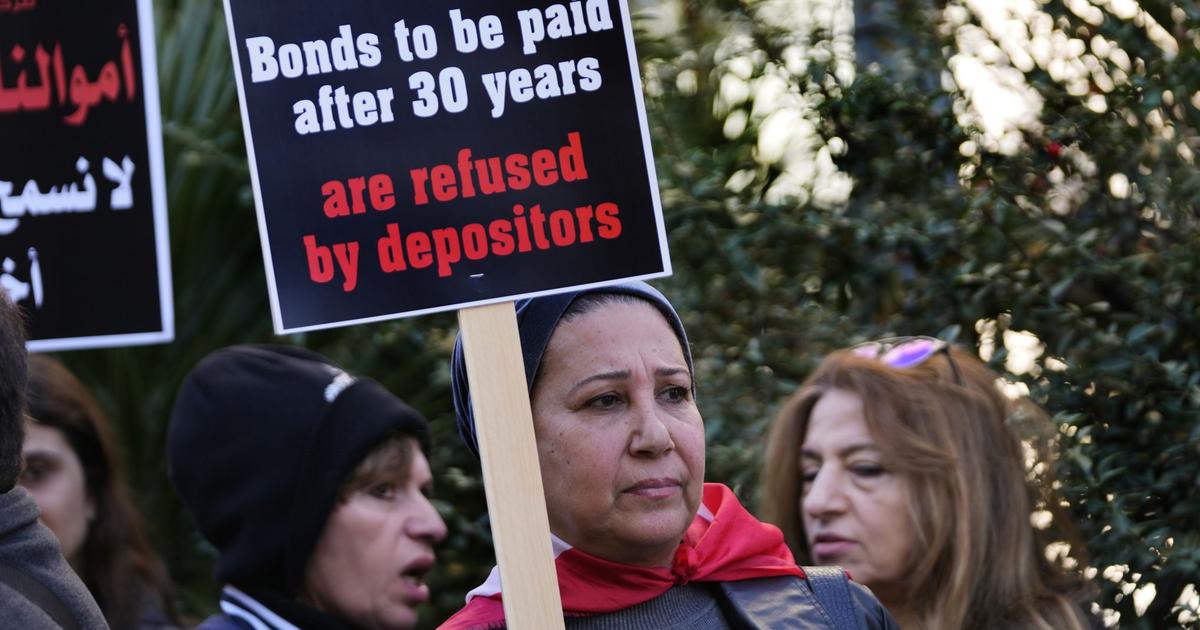First the cash machines went on strike. Banks then refused to pay more than US $ 1,000 to account holders, or cut ticket times to make it hard for employees and workers to get their money.
Gas station operators threatened to dispute, the Association of Lebanese grain mills warned of bread shortages, and last Sunday thousands of demonstrators moved through Beirut and other cities.
What is just beginning to falter in Lebanon has been one of the most reliable pillars of economic confidence so far: linking the Lebanese pound to the dollar, which has been trading at a fixed rate of 1: 1500 since 1997. Essential for the small country, which makes little exportable except for wine and pickled cheese balls, but imports oil, gasoline, flour, medicines, technical equipment and other basic goods - for dollars, which act so far as a secondary currency.
But dollars are, at least to the official rate, hardly to have. Earlier this week, private moneychangers demanded up to £ 1,750 for a dollar.
Rumors of an impending collapse
Rumors of an imminent collapse of the heavily indebted state have been raging for months, with the head of the central bank, although gratefully reassuring, that there is no cause for concern at all - but his recent moves to increase income sound rather disconcerting.
First, the government announced that it would cut the already meager pensions of its police and soldiers. Returning holders of a Lebanese phone number who had bought a new phone abroad will now be promptly sent an SMS requesting an exorbitant import tax.
Companies, private individuals, but also a German foundation receive reminders without any proof, they would not have paid a traffic fine imposed years ago and would have to settle this with interest.
The slippage of the dollar coupling could now also endanger the sector that was previously regarded as a guarantee of stability: the banks. So far, they have benefited from the fact that above all the large and relatively wealthy Lebanese diaspora for dreamlike interest rates of more than ten percent invested there dollars, which were lent to the central bank. Their $ 37 billion shrunken foreign exchange reserves are pumped stability, the result of a pyramid scheme.
The state as prey
Banks continue to lend money to the central bank, but are finding fewer and fewer customers willing to invest dollars on them. And against the background of a national debt of 150 percent of the gross national product, one of the highest in the world.
Although central bank chief Riad Salameh on Monday promised importers of gasoline, flour and drugs currency access to the official exchange rate. But this does not change the basic problem of a state system paralyzed by corruption, incompetence and self-blockade.
Since the end of the Civil War, the various Christian, Shiite, Sunni, and Druze power blocs view the state as loot, plundering it along the prism lines.
Lebanon is a state in the process of being dismantled and has fallen from a highly developed infrastructure to a third world level. There are no trains, no public transport anymore. The power supply fails again and again for hours. Beiruters get their tap water by truck, and the 2015 collapsed garbage disposal welcomes arrivals at the Beirut airport to today with a biting smell of decay, depending on the wind direction.
The causes are less ineptitude than greed: the waste management companies, closely linked to the political elite, charge exorbitant fees paid out of public funds. Instead of increasing the recycling rate, as announced, all waste will continue to be dumped in the sea, believing that they will be able to gain land.
Saudi Arabia's Crown Prince does not want to pay anymore
Fillet plots are sold to private individuals for ridicule prices or sold to the notorious Russian oil company Rosneft, such as Tripoli's oil terminal. Without the legal tender and at a price that is declared as a "state secret". The deal was co-ordinated by Foreign Minister Gibran Basil, who is actually not responsible for this, but as the son-in-law of the president, the business could not be taken.
For years this was fine, as long as the foreign patrons paid the bill to their respective clientele. But Saudi Arabia's triumphant crown prince Mohammed bin Salman does not want to pay anymore. Iran, in turn, can no longer pay, at least not as much as before, as the new US sanctions against Tehran strangle the economy there.
The Western donor community launched a $ 11 billion aid package in 2018, but committed to anti-corruption and bloated administration reforms, as well as huge subsidies for non-functioning energy supplies. The funds are frozen to this day. The rating agency Fitch has already lowered Lebanon's creditworthiness to junk-level.
Enough reasons, to take care of the country urgently. But the rulers in Beirut are busy elsewhere. The Cabinet did not meet for six weeks after the bodyguard of one of the Druze ministers shot dead two men from the bodyguard of the other Druze minister.
And Premier Saad Hariri has to somehow explain why he did not pay the employees of his station Future TV for months and finally went into bankruptcy, but previously paid 16 million dollars to a South African bikini model after a party.















